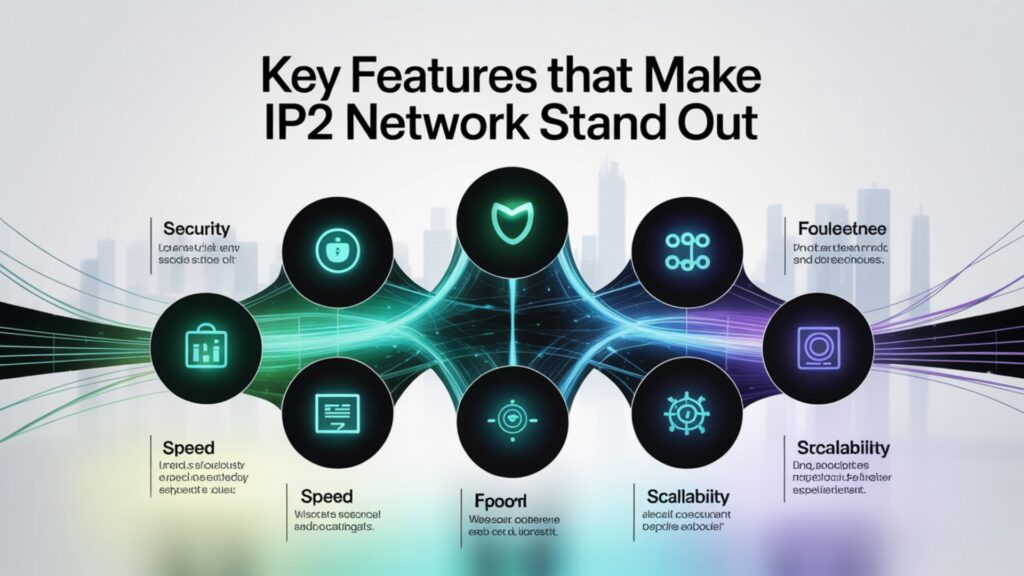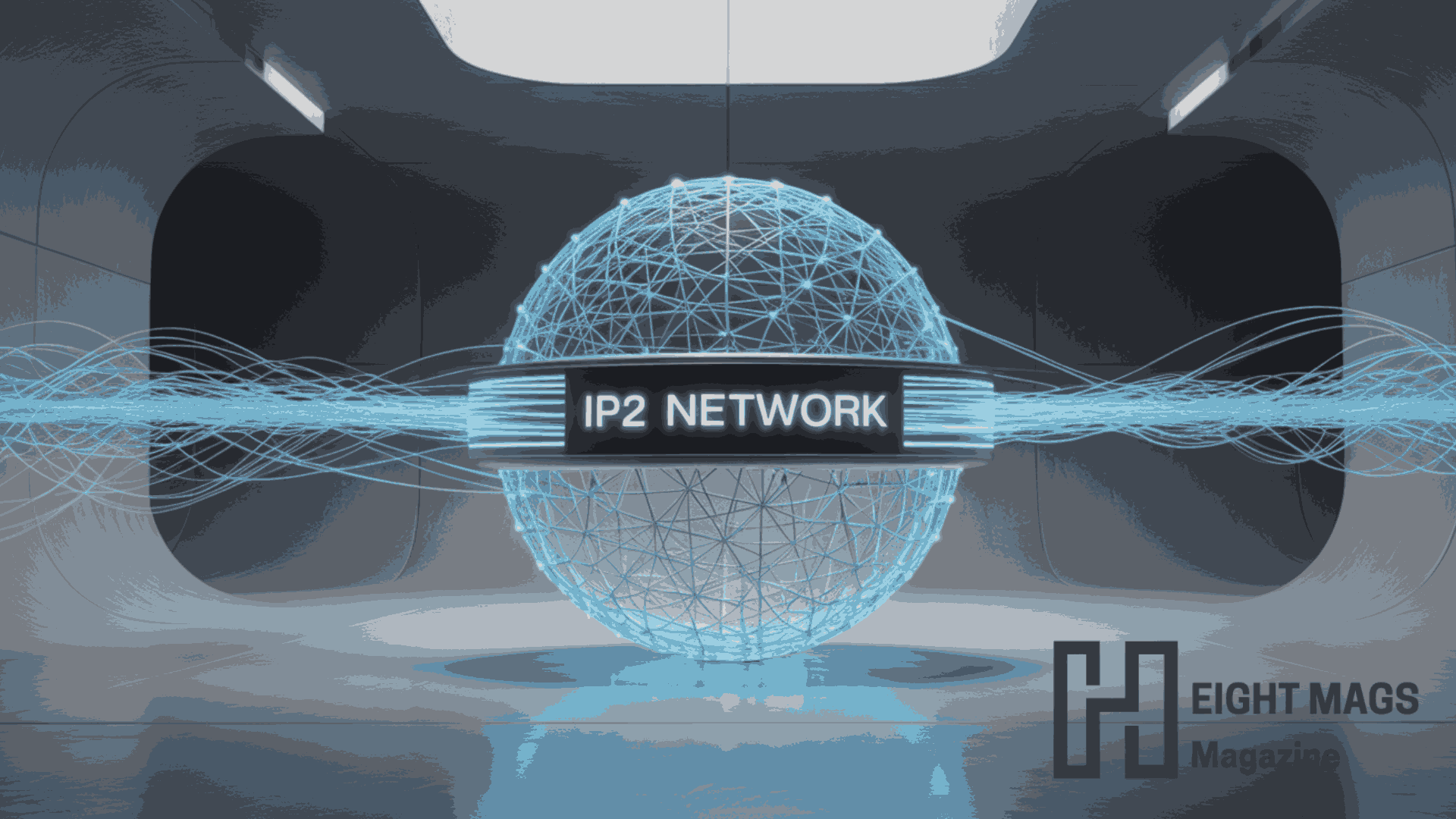Privacy has increasingly become a significant issue in the current digital era. As more individuals seek ways to safeguard their online anonymity and ensure secure communication channels, networks like the IP2 Network offer a solution. This privacy-focused network, a part of the Invisible Internet Project (I2P), prioritizes data sharing and internet browsing in a way that minimizes risk. By utilizing peer-to-peer connections and a decentralized structure, I2P ensures privacy while fostering a strong and secure digital environment.
The IP2 Network provides an alternative to traditional browsing, where garlic routing ensures secure, anonymous communications. By leveraging multiple nodes and path tracing, it creates an anonymous overlay network that can protect data from surveillance efforts. Let’s dive deeper into the features of IP2 Network and explore how it guarantees a secure and private browsing experience.
Key Features That Make IP2 Network Stand Out
The IP2 Network stands out primarily due to its ability to offer decentralized control and multi-protocol functionality, which makes it versatile for various applications. Unlike conventional networks, I2P functions on a peer-to-peer model, with each user supporting the network’s infrastructure, reducing the risk of central server failures. This decentralized approach ensures no single entity can easily disrupt the network, providing a resilient environment for users.
The network also integrates real-time data analytics, which allows for continuous monitoring and swift decision-making to combat cyber threats. Additionally, I2P software automatically manages routing decisions, ensuring that your data transmission remains secure. The data encryption protocols in place guarantee privacy and freedom of expression while blocking potential malicious actors. Moreover, it is optimized for cost-effectiveness by eliminating the need for centralized infrastructure.

Unmatched Benefits of Adopting IP2 Network for Users
Adopting the IP2 Network provides significant benefits, especially in terms of data privacy and security. One of the most compelling advantages is the reliable network that ensures users can experience efficient browsing without the risks associated with traditional internet use. The network’s scalability also makes it an excellent choice for businesses that require flexible, cost-saving solutions.
The I2P Network offers enhanced performance optimization, particularly during peak usage times or traffic fluctuations. By using I2P, users can ensure uninterrupted service, even during demand spikes. It also fosters collaboration among developers and users, leading to continuous improvement of the platform, as community forums provide a space for sharing resources and insights on how to reduce downtime and enhance overall user experience.
Essential Security Measures in IP2 Network You Must Know
The IP2 Network places a strong emphasis on security, providing security insights and measures to ensure that user data remains protected. One of the main features is encryption protocols, which safeguard file sharing and email communications. This level of protection helps reduce the chances of identity theft and data breaches, offering a secure communication experience.
The network also features distributed storage, which mitigates the risks of censorship resistance. This decentralized design guarantees that the network remains free from single points of failure. As a result, users can confidently engage in secure transactions and share data across platforms without fearing surveillance or unauthorized access.
Step-by-Step Guide: How to Set Up IP2 Network
Setting up the IP2 Network is a straightforward process. Start by visiting the official website to download the I2P software that’s compatible with your operating system. After installation, the software automatically begins routing your internet activity through secure communication channels. It’s as simple as setting up an account, configuring your I2P network settings, and choosing your privacy preferences.
For newcomers, online resources and tutorials provide detailed instructions for integrating systems into the IP2 Network. These guides help you understand how to leverage I2P’s unique features for optimal performance and user-friendly interfaces. Additionally, community forums serve as a valuable resource for those seeking advice or troubleshooting assistance from fellow users.
Real-Life Success Stories: IP2 Network in Action
The IP2 Network has seen real-world success across several industries, showcasing its adaptability. For instance, a financial services company leveraged I2P’s secure transactions to handle sensitive client information while minimizing fraud attempts. By adopting I2P’s encryption protocols, the company ensured data privacy protection, reducing the risk of identity theft significantly.
Another example comes from a tech startup in the digital marketing industry. The company used I2P to enhance its data privacy efforts by employing I2P’s decentralized control to manage client communications securely. This allowed them to improve their e-commerce performance while maintaining the highest levels of security and privacy. Real-life examples like these show that I2P is an essential tool for maintaining privacy in digital operations.
The Future of IP2 Network: What Lies Ahead for Businesses
With privacy and security issues increasingly shaping the digital world, the future of the IP2 Network appears highly promising. I2P’s commitment to privacy preservation and decentralized networks will likely make it a vital resource for businesses in the years to come. Innovations in digital privacy and secure communication solutions will keep I2P ahead of its competitors, offering businesses scalable solutions for data sharing and secure browsing.
Moving forward, the I2P Network will continue to develop features that align with the ever-growing demand for online privacy. As technological advancements push the boundaries of data encryption, I2P will likely expand its applications to offer even more secure ways to access hidden services and peer-to-peer networks.
FAQ
1: What is the IP2 Network and how does it work?
The IP2 Network, part of the Invisible Internet Project (I2P), is a privacy-focused network that allows secure communication and data sharing. It works by using peer-to-peer connections and a decentralized control system to ensure online anonymity. The garlic routing technique, a key feature of the network, routes data through multiple nodes, making it impossible for any third party to trace your activities.
2: What are the main benefits of using the IP2 Network?
The IP2 Network offers numerous benefits for users who prioritize privacy and security. By leveraging its decentralized architecture, the network eliminates the risk of censorship and centralized control, ensuring that users have complete freedom of expression. Additionally, its robust data encryption protocols guarantee secure communication across all platforms, from file sharing to email. The scalability of I2P makes it a great solution for businesses, providing cost-effective and secure transactions while maintaining user autonomy.
3: How does the IP2 Network ensure privacy and security?
The IP2 Network prioritizes data privacy through several key security measures. I2P uses encryption protocols to protect sensitive information during data transmission. Additionally, the network’s distributed storage system ensures that there is no point of failure, protecting against potential data breaches or identity theft. With its anonymous overlay network, I2P provides absolute anonymity by routing data through multiple nodes, making it nearly impossible for any external parties to monitor or track users.
4: Is the IP2 Network suitable for business use?
Yes, the IP2 Network is suitable for both personal and business operations. It provides scalable solutions for businesses looking to ensure secure communication and data privacy. By leveraging I2P, businesses can protect sensitive data, streamline inventory management, and improve e-commerce performance. Furthermore, the network’s cost-effectiveness makes it an attractive option for small and large enterprises alike. The network infrastructure is designed to handle peak usage times, ensuring operational efficiency without compromising security.
5: Is the IP2 Network similar to Tor?
While both IP2 and Tor are used to maintain online anonymity, there are key differences. I2P focuses on creating a decentralized network with peer-to-peer connections, providing censorship resistance and data encryption. Tor, on the other hand, is more centralized and relies on its onion routing protocol. The main advantage of I2P is its focus on privacy within a digital ecosystem, allowing for secure browsing and file sharing without the risks associated with centralized control.
6: How do I get started with the IP2 Network?
Getting started with the IP2 Network is easy. Begin by downloading the I2P software from the official website. The software will guide you through the setup process, where you can configure your I2P network settings and begin secure communication. For first-time users, there are tutorials and online resources available to help you navigate the system and integrate it with existing business operations or personal use.
7: Does the IP2 Network provide full security and anonymity?
The IP2 Network offers strong security measures, but like any system, it’s essential to be cautious. I2P significantly enhances privacy through its garlic routing and data encryption, but no system can guarantee absolute anonymity. It is crucial for users to follow best practices for online safety, such as avoiding phishing attempts and understanding potential risks when engaging in deep web activities. While I2P provides censorship resistance and protects against surveillance, it’s always advisable to stay vigilant.
8: What industries benefit most from using the IP2 Network?
The IP2 Network benefits a wide range of industries, especially those where data privacy and secure communication are paramount. Financial services, e-commerce, and digital marketing industries can use I2P to protect client information, enhance transaction security, and maintain privacy during data sharing. Additionally, businesses in tech startups and sectors that rely on online anonymity for operations, such as inventory management, can leverage I2P’s decentralized infrastructure to ensure a secure environment for sensitive data.

